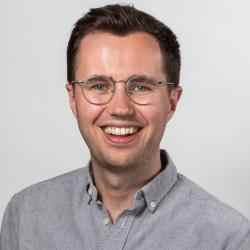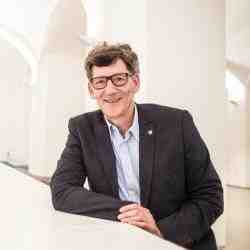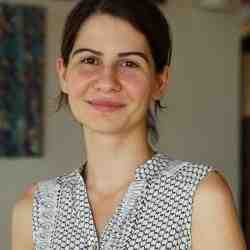Introduction
Based on a profound sense of respect for rural laborers that grew out of his own early experience working side by side with them, Goya Lamartine has designed and implemented the first comprehensive paralegal training course for community advocates in northeast Brazil.
The New Idea
Goya Lamartine believes deeply in the importance of law in the exercise of democracy. He learned at an early age that a lack of access to legal knowledge creates obstacles in the paths of citizen groups organizing in rural areas to improve their living and working conditions. After encountering these difficulties in case after case on which he offered legal advice while an intern at the Salvador Archdiocese's Commission on Justice and Peace in 1988, it occurred to Goya that the most effective way to ensure respect for basic legal protections in rural communities was to train the residents themselves in the skills they would need to know and defend their rights. He has since spent the past seven years developing and refining a systematic course that introduces people with limited formal education to the basic concepts and techniques of legal practice. Goya's program, aimed specifically at rural communities, translates complex legal jargon into accessible terminology. His program succeeds in demystifying the law's definition of the parameters of state-society relations, enabling community workers, human rights activists, and labor organizers to frame their demands in effective ways that achieve results. His initiative differs from others in the area of training for citizenship because it offers systematized legal content, logically ordered and fully adapted to the reality of the communities in which it is applied. The ultimate value in Goya's approach derives from his ability to facilitate a process that turns downtrodden victims into citizens capable of participating fully in a dynamic of dialogue and debate that turns the rhetoric of democracy in rural areas into a reality.
The Problem
Brazil's return to democracy, after two decades of dictatorship, reestablished the core institutions that make possible relatively free and fair elections at the local, state, and federal levels of government. Nonetheless, the perceived reality in rural regions is still one in which powerful landowners and large agricultural businesses use money and political connections to impose their will on small farmers and laborers. Municipal authorities seem to allocate their funds to projects of interest to the wealthy, while police and judicial systems appear to work in concert with local elites to suppress organization around workers' and tenants' rights. Whether real or imagined, this perception creates a pervasive sense of hopelessness, fatalism, or apathy in many poor rural workers, and they tend to have little faith in the notion that "democratic" institutions might actually function in their defense.With specific regard to the legal ramifications of this sense of powerlessness, rural communities confront a host of challenges that to this point they have been unable to resolve without recourse to expensive lawyers, or to overburdened juridical services offered by the Church. As a result, cases of industrial pollution of water sources or expropriation of land often go unchallenged, even though existing legal codes create grounds for some response from the affected communities. Police brutality or arbitrary detentions of those deemed "dangerous" by the authorities similarly remain uncontested because of the absence of legal advisement. Even less contentious legal matters, such as the resolution of a deceased person's estate or the constitution of bylaws for a cooperative association, can be delayed or deferred because of the costs involved in hiring professional assistance.
The Strategy
After serving as a legal intern for a year with the Justice and Peace Commission, Goya decided that local communities deserved better access to legal knowledge to confront these types of problems. Starting in 1989, he began to give training courses to rural workers in the coffee region of Chapada da Diamantina. In 1991 when he moved to Salvador, Goya formed an association of attorneys willing to provide legal aid to workers' associations and continued to give similar courses elsewhere in the state. However, as economic conditions worsened and the unions were unable to pay for such services, Goya decided to concentrate his activities on consolidating the courses already in progress and supplementing them with other topics and information. He realized that if the content were more systematized and taught in stages, he could integrate a civic education component that would enable community organizations to represent their interests before government as well as judicial authorities. Over the course of the next few years, he, therefore, refined the content and wrote texts to cover three introductory modules (on constitutional, civil and penal law) and ten supplementary units (on codes pertaining to labor, agriculture, land tenancy, unions, elections, public administration, and environmental law). Goya has since trained six assistants to offer the course, which is taught in ten units of four consecutive days each, meeting once every two months over a year and a half. While all participants begin with the same three introductory modules, each "class" is free to prioritize the remaining topics so as to focus on those most relevant to the particular needs of their region. The participants are elected by their peers in municipal assemblies, and they publicly assume a commitment to place the skills they acquire as "lay jurists" at the service of the community. Given the nature of the content, they must meet certain requirements: a minimum educational level to be able to read and understand the texts, and a recognized history of involvement in community-based social issues. Moreover, the courses are only offered in regions where some form of civil society, albeit incipient, is emerging, and where local organizations can provide a venue with classroom space, food, and lodging for participants. Goya has already held courses in more than 30 municipalities, training over 300 "lay jurists" or paralegal workers in the northern and western regions of Bahia. He tries to continually enhance the quality of the courses, improving the participatory teaching technique and updating the modules. Graduates of the course have successfully intervened on behalf of local "clients" in all types of civil and criminal cases, and they have also held municipal governments accountable for the provision of services that are mandated but rarely offered. In the short term, Goya intends to complete the courses underway in the region of Chapada da Diamantina and in the northern part of Bahia state. In the western and lower mid-São Francisco regions, the idea is to attract new groups, spreading the work to the semi-arid region. However, after seven years' involvement with the program in Bahia, Goya is now convinced that it can be replicated in rural regions throughout Brazil. In his capacity as Northeast Regional Director of the Brazilian Association of Nongovernmental Organizations, he has developed contacts with legal aid groups that are interested in applying his materials and methodology in other states. He is currently negotiating with the law school at the University of Bahia to recruit young lawyers to perform their social service through his program. Goya is also planning to write more extensively on his experiences and methodology so as to produce a more systematic guide to implementation of his program.
The Person
Though his parents were storekeepers, Goya grew up in a rural farming community and learned to work the fields alongside the laborers. When he realized that through a solid education he would be able to choose a career, he first thought of becoming an agronomist so as to help his neighbors improve their yields. However, once enrolled in university, he became interested in the law, which pleased his parents greatly because they hoped that he would increase his wealth and social status as an attorney. Upon graduation he faced a difficult choice when offered a lucrative and comfortable position at a prestigious law firm not far from his birthplace in Irece. However, despite pressure from his parents, he decided to turn down that opportunity, remaining faithful to his initial option to work on behalf of poor rural communities. He chose instead to volunteer for the Justice and Peace Commission. Goya's exposure to the plight of workers in coffee plantations cemented his resolve to empower them by making the law accessible, in language they could understand, so that they could more fully exercise their rights as citizens.




